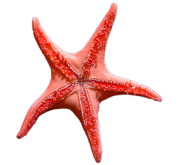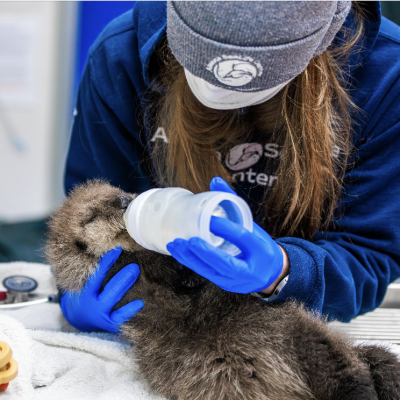An Extraordinary Rescue: Otter Pup Survives Orca Attack and is Admitted to ASLC Wildlife Response Program September 18, 2023
In an unusually dramatic wildlife response case, the Alaska SeaLife Center (ASLC) has admitted a newborn female northern sea otter pup from Homer, AK. The pup was orphaned following an orca attack incidentally witnessed by ASLC laboratory technician and wildlife response team member Natalie Hunter. While calls to the ASLC’s Wildlife Response Program concerning lost or abandoned sea otter pups are not uncommon, the background of these patients — including how the pup ended up alone — is often a matter of speculation, making this case particularly unique.
The nerve-wracking incident occurred September 9, 2023, while Hunter and friends were on a recreational fishing trip in Homer, AK. They were excited to spot two wild orcas, and the boat captain shut the motor off to observe from a distance. The group on the boat did not know this was a pod of transient orcas known to predate on mammals, so Hunter and friends did not immediately connect that an otter floating nearby could be a target. It wasn't until a commotion under the otter happened that they realized what they were witnessing. The otter did not attempt to dive away from the whales, and the group realized the otter was carrying a pup when they heard the characteristic young otter calls.
Multiple attacks from the orcas ensued. They saw both the mother otter and pup burst out of the water after an impressive tail slap from one of the orcas. Mom and pup were separated, and the orcas focused their attention on the mother. Eventually, the mother otter did not resurface, and the orca began leaving the area. Persistent cries from the water indicated that the pup had survived the attack. After waiting to ensure the orcas were not returning for the pup and the mother did not resurface, the group called the ASLC Wildlife Response Hotline (1-888-774-7325) to report the incident and wait for further instruction.
Natalie Hunter, ASLC Lab Technician, frequently works on the ASLC wildlife response team and is usually one of the people taking the calls on the hotline.
“It was weird to be on the other side of the wildlife response hotline. It wasn’t someone calling me to report an animal in need. It was the other way around,” said Hunter. “My brain was in wildlife response mode during the entire incident, thinking we, unfortunately, may have an otter pup rescue on our hands. It wasn’t until the entire event ended, the wild orcas had left the area, and the pup started crying out for its mother that I knew we had to think about the next move.”
To make the situation even more extraordinary, Hunter was on board with friends who have wildlife response experience. Ally Kintner was formerly a USFWS volunteer stranding coordinator in Homer. Another friend, Adriana Ferello, was also a former USFWS volunteer stranding coordinator, former ASLC intern, and current veterinary technician at the Georgia Aquarium. From the group’s extensive experience rescuing sea otter pups, they knew this pup did not have much time left and knew how to act accordingly.
Once the ASLC got permission from the U.S. Fish and Wildlife Service (USFWS) to respond to the pup, the group carefully got the newborn otter out of the water and onto the boat.
“Her cries were gurgly, and when we got her out of the water, she was soaked,” Hunter recollects. “Her coat wasn’t repelling water and keeping her buoyant like it should have been.”
Despite the pup’s trying circumstances, she was now in experienced and caring hands. The group made their way back to the shore, attending carefully to the young otter for the duration of the boat trip. They met the ASLC Wildlife Response team halfway between Seward and Homer, about a two-hour drive, and the ASLC team immediately transported the pup back to the Center. Staff conducted an admit exam and found that the pup was fatigued and hungry, but otherwise seemed to be in good health. A fresh umbilical cord confirmed the patient was only a day — possibly even hours old.
“Very rarely do we know how a wildlife response patient got to the location and the condition it was found in. For most reported cases of an abandoned seal or otter pup, we have the reporter watch for a length of time to see if the mother returns. In this rare case, we know exactly what happened to this newborn pup,” said Jane Belovarac, ASLC Wildlife Response Curator.
This is the second orphaned otter pup admitted to the ASLC in less than a week. Because northern sea otter pups receive constant care and attention from their mothers until around six months of age, both patients are under 24/7 care from our team during this sensitive time.
The ASLC will continue to post updates on current wildlife response patients on the ASLC social media pages.
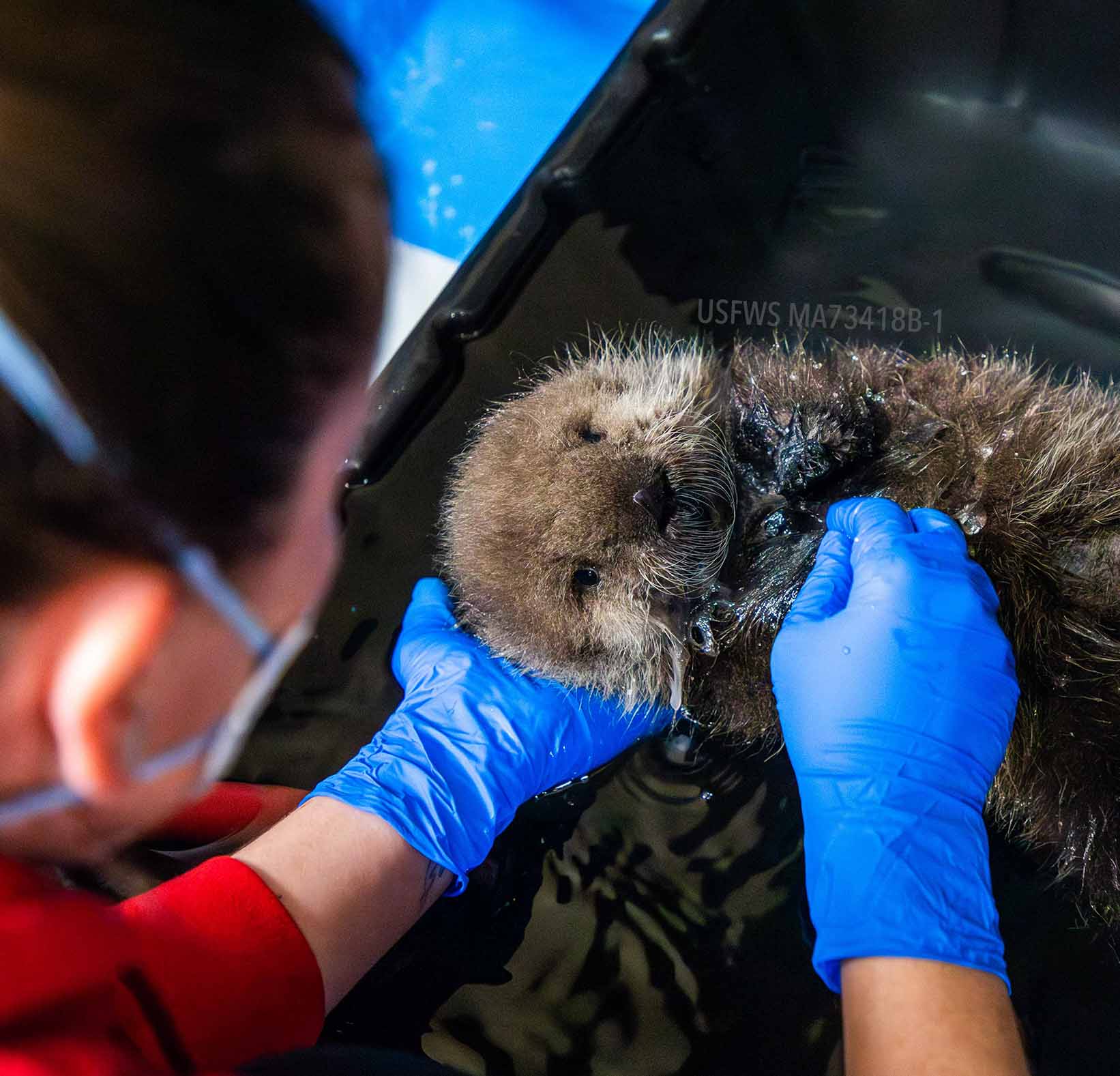
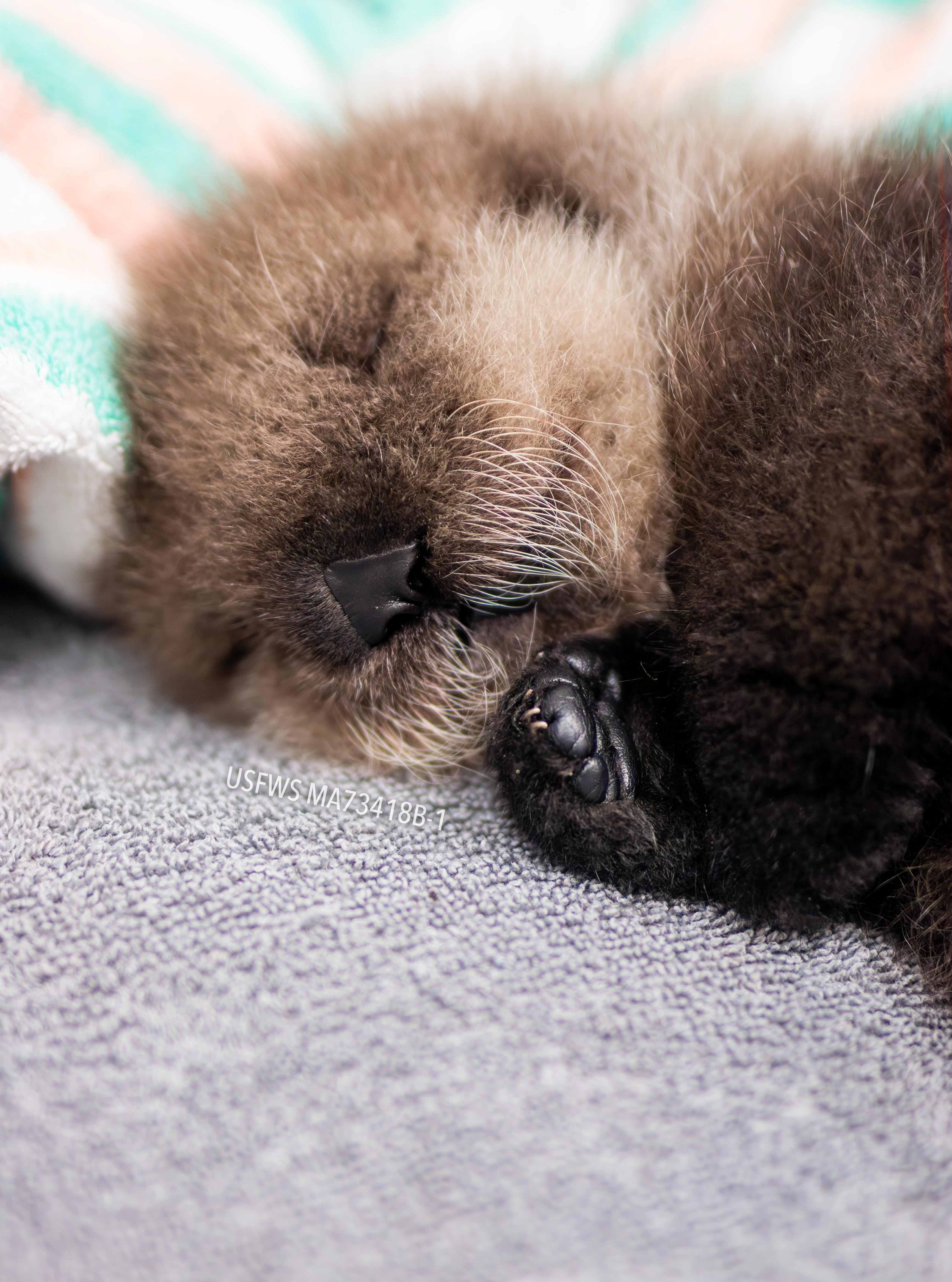
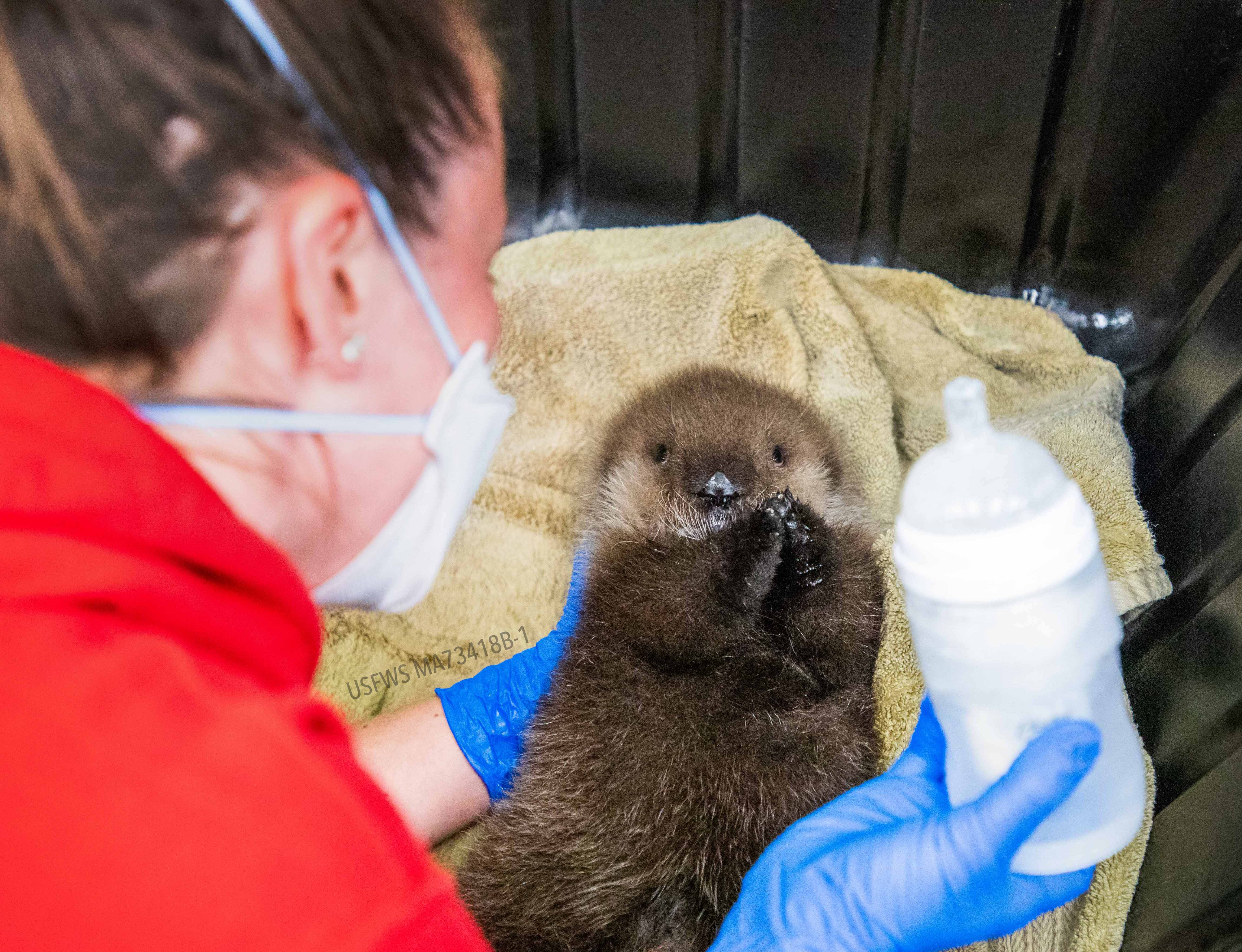
The Alaska SeaLife Center’s Wildlife Response Program can only provide care for stranded and injured marine animals with help from corporate sponsors and individual donors. People are encouraged to contribute to the care of rehabilitating marine animals here: www.alaskasealife.org/donate. The Center acknowledges the ongoing generous support of the Wildlife Response Program from supporters like ConocoPhillips Alaska, Marathon Petroleum Corporation, PetZoo, Partners 4 Wildlife, Matson, GCI, and a number of individual donors, funds, and foundations such as Stanley J Williams Fund, Mesara Family Foundation, and the NC Giving Fund.

